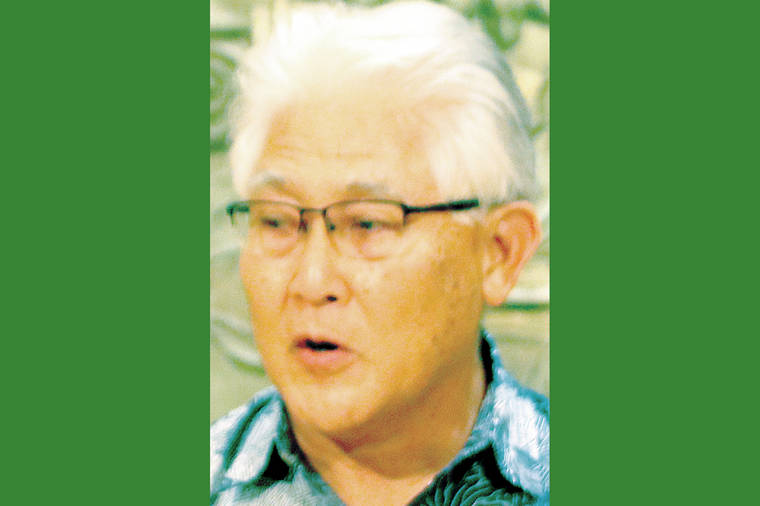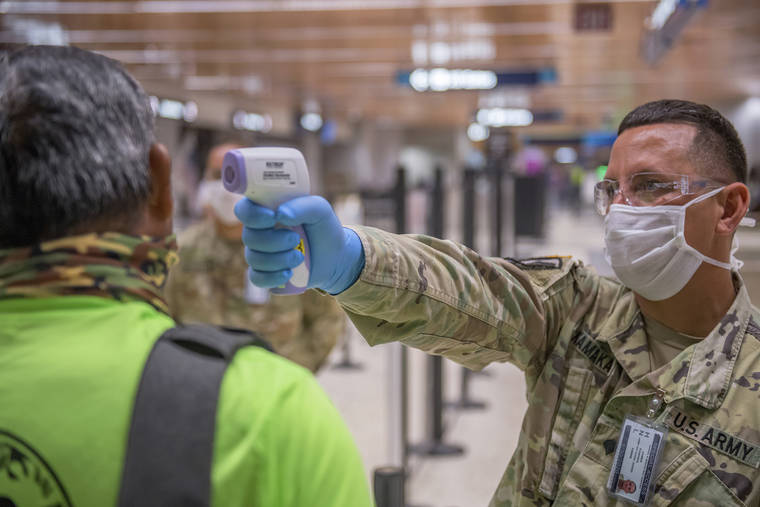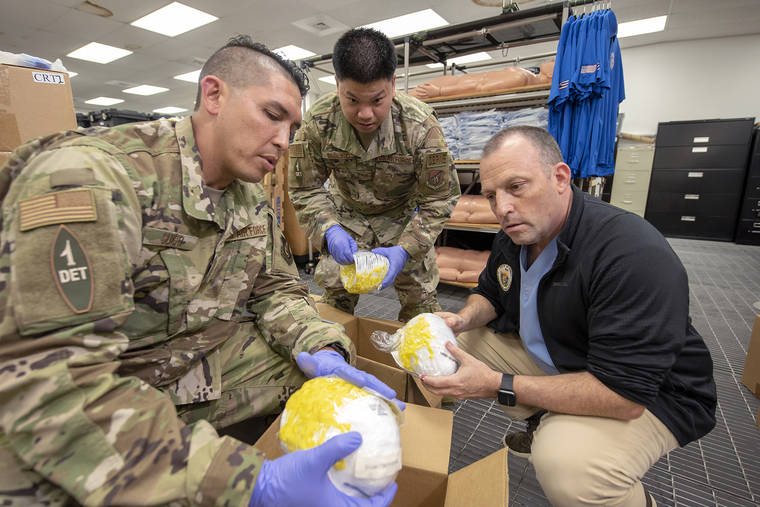Lt. Gov. Josh Green on Wednesday said he has some issues with U.S. Centers for Disease Control and Prevention guidelines about testing for the COVID-19 coronavirus.
“They have, in general, told us that you want to test people only who are symptomatic,” Green, a Kona physician who leads the state’s COVID-19 task force, told the state Senate Special Committee on COVID-19.
“I find that very, very problematic.”
Green said testing the close contacts of those who’ve tested positive for COVID-19, instead of just contact tracing, is necessary because Hawaii has multigenerational households at a rate double that of the U.S. mainland.
He said that makes kupuna in those households especially susceptible.
“As you saw just a couple of days ago on Molokai, first one individual was positive, then the person’s spouse was positive, then a third person,” he said.
Green said the problem with contact tracing alone is that it “leaves this large puka in what we find out.”
“We know a large percentage of people are asymptomatic carriers of the disease, and if they’re walking around, they could be spreading,” he added. “What we must do, and this is borne out in a lot of different countries, what we must do is to contact test.
“We will have some negative tests, no doubt, and people will have to be informed, ‘You’re not necessarily out of the woods.’ … And we’re going to do that … on Maui with the crisis that’s emerging there.”
Green was referring to the news that a cluster of COVID-19 cases was identified among hospital staff at Maui Memorial Medical Center, the island’s only hospital.
The hospital said 15 of its workers have tested positive and were sent home to self-isolate. Plans are being made to move them to a quarantine site away from their families.
State Health Director Bruce Anderson said all who have had close contact with the employees will be tested.
In addition, Maui recorded its second COVID-19-related death, bringing the total statewide to six.
There have been 435 cases statewide as of Wednesday, including 25 newly reported. Of those, 42 required hospitalization.
Green also questioned a plan to release inmates serving time for misdemeanors or petty misdemeanors in island jails and prisons, saying that if corrections officers have the right to protective gear, then “prison is safer than Costco.”
Green said he doubted the wisdom of releasing antisocial inmates who are “not going to listen to all the social distancing and follow quarantine rules.”
In response to a question by state Sen. Donna Mercado Kim, however, he expressed concern that the chronic overcrowding in the state’s correctional facilities “could cause a mass infection.”
Noting inmates “tend to be poorer health, people with a lot of chronic disease, a lot of drug addiction,” Green fears an outbreak in a jail could cause “a big surge that would take up all our ventilators.”
He said some inmates could be moved to tents on a correctional facility’s campus or to a separate facility “where we could keep some modicum of lockdown or use ankle bracelets.”
“So, thinning the population geographically, that could probably make sense,” he said. “Releasing a lot of prisoners, that’s a policy call.”
In addition, Gov. David Ige on Wednesday appointed former Hawaiian Electric CEO Alan Oshima to develop and implement plans to help the state recover from the virus.
“We are in a crisis. This is unprecedented,” Oshima said, and pledged to gather the business, nonprofit and culture and art sectors to address the community’s needs “post-COVID-19.”
Almost one-quarter of Hawaii’s workforce applied for unemployment benefits in March as restaurants, hotels and other businesses shuttered to contain the spread of the virus.
The Associated Press contributed to this story.
Email John Burnett at jburnett@hawaiitribune-herald.com.











